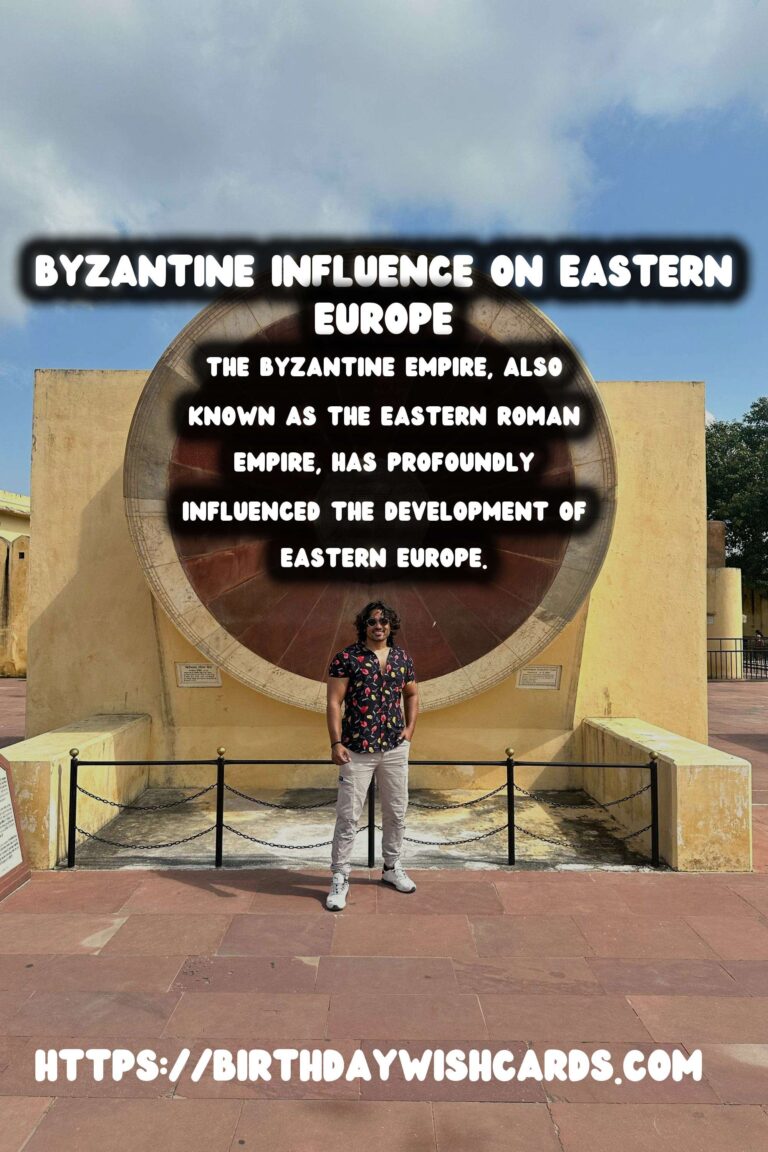
The Byzantine Empire, also known as the Eastern Roman Empire, has profoundly influenced the development of Eastern Europe. Encompassing historical, cultural, and religious aspects, this influence has left an indelible mark on the region, laying the foundations for modern nations and cultures.
Background of the Byzantine Empire
Formed from the remnants of the Roman Empire, the Byzantine Empire flourished for over a millennium. With Constantinople as its capital, the empire developed a unique identity separate from its Roman roots by embracing Greek culture and the Christian faith.
Cultural and Religious Influence
The Byzantine Empire was crucial in spreading Christianity across Eastern Europe. Missionaries like Saints Cyril and Methodius were instrumental in evangelizing the Slavic peoples, influencing them both religiously and culturally. The adoption of the Cyrillic alphabet, developed by these missionaries, greatly impacted the linguistic development of the region.
The Byzantines also played a crucial role in preserving classical Greek and Roman knowledge during the Middle Ages. This cultural transmission included art, philosophy, and science, which were passed on to Eastern European societies, profoundly shaping their intellectual landscapes.
Political Dynamics and Alliances
The Byzantine Empire established a network of alliances and diplomatic relations across Eastern Europe. Through strategic marriages and treaties, it influenced the formation of Eastern European polities. The Empire’s decline in the late 14th and 15th centuries led to the rise of new powers, such as the Ottoman Empire and the Grand Duchy of Moscow, each taking cues from Byzantine governance and orthodoxy.
Art and Architecture
Byzantine art and architecture introduced distinctive styles that characterized Eastern Orthodox churches and other significant structures in Eastern Europe. Icons, mosaics, and distinctive dome structures are ubiquitous in the region’s places of worship, symbolizing divine presence and spiritual grandeur.
Furthermore, Byzantine art influenced local artistic developments, blending with indigenous styles to create a rich tapestry of cultural expression that is still celebrated and preserved in Eastern European countries today.
Legacy and Modern Influence
Even after the fall of Constantinople in 1453, the Byzantine legacy continued to influence Eastern Europe. Many countries in the region regard themselves as cultural and spiritual successors of the Eastern Roman Empire.
The Byzantine philosophical and religious ideals deeply permeate modern Eastern European societies. The Eastern Orthodox Church, with its roots in Byzantine Christianity, remains a pivotal institution, and the region’s languages, arts, and legal systems continue to reflect Byzantine influence.
In conclusion, the Byzantine Empire profoundly impacted Eastern Europe, shaping its religious, cultural, and political landscapes that persist to this day. Recognizing this heritage allows us to appreciate the rich historical tapestry of Eastern Europe and the enduring legacy of the Byzantine civilization.
The Byzantine Empire, also known as the Eastern Roman Empire, has profoundly influenced the development of Eastern Europe. The Byzantines played a crucial role in preserving classical Greek and Roman knowledge during the Middle Ages. 
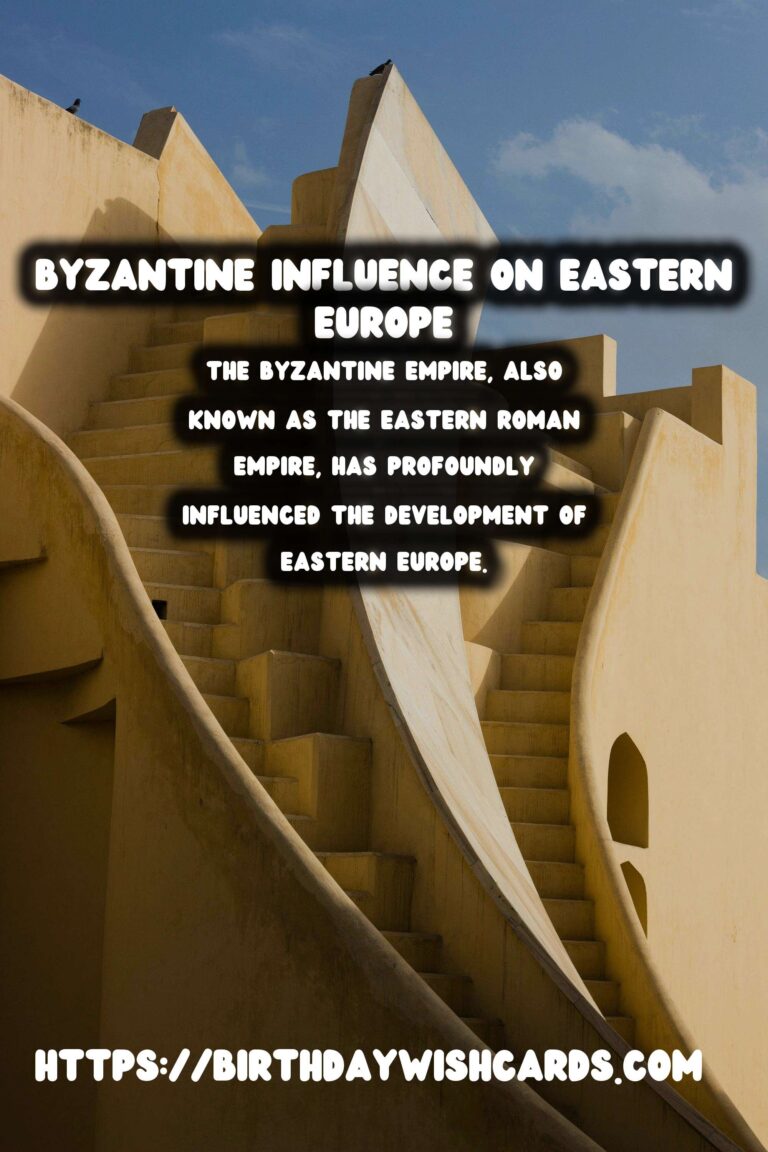
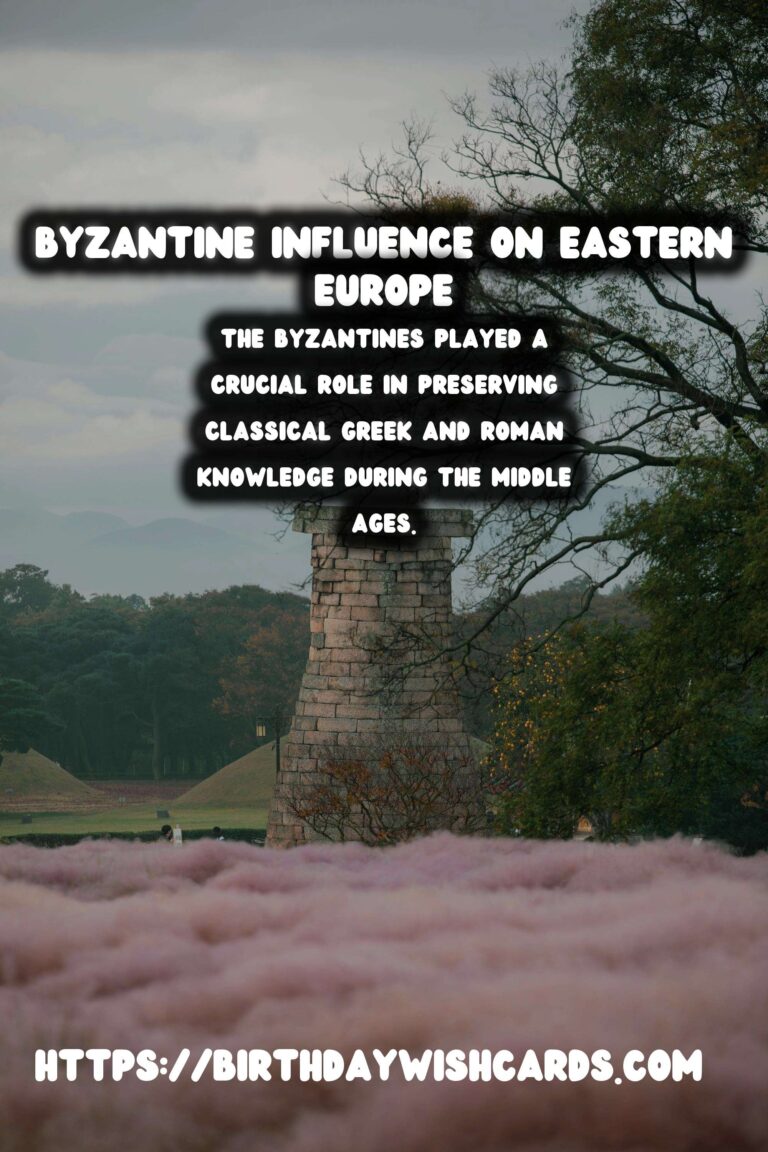
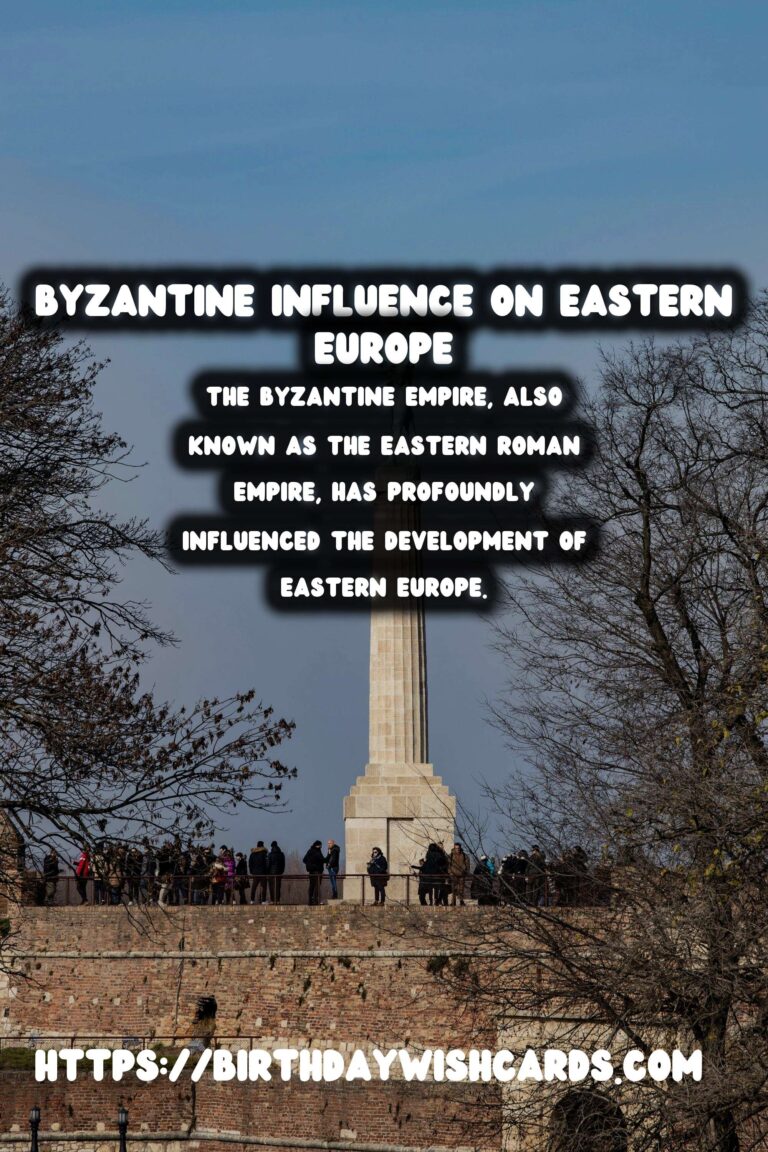
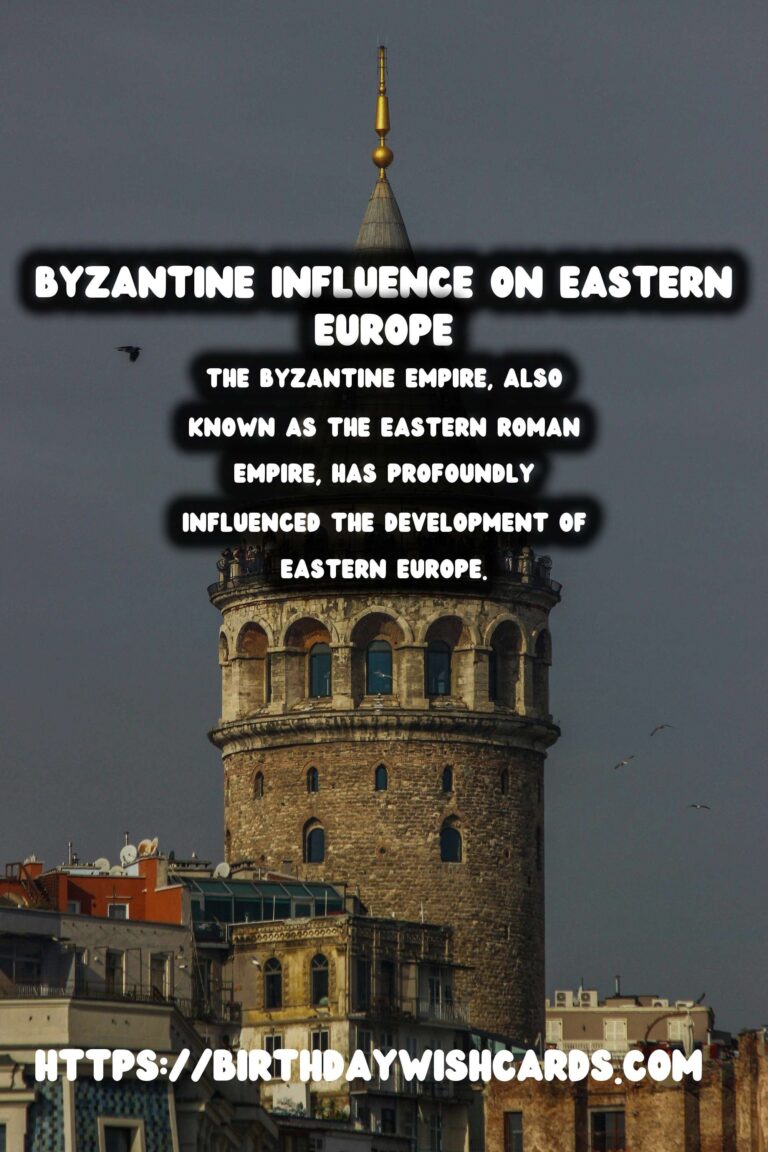
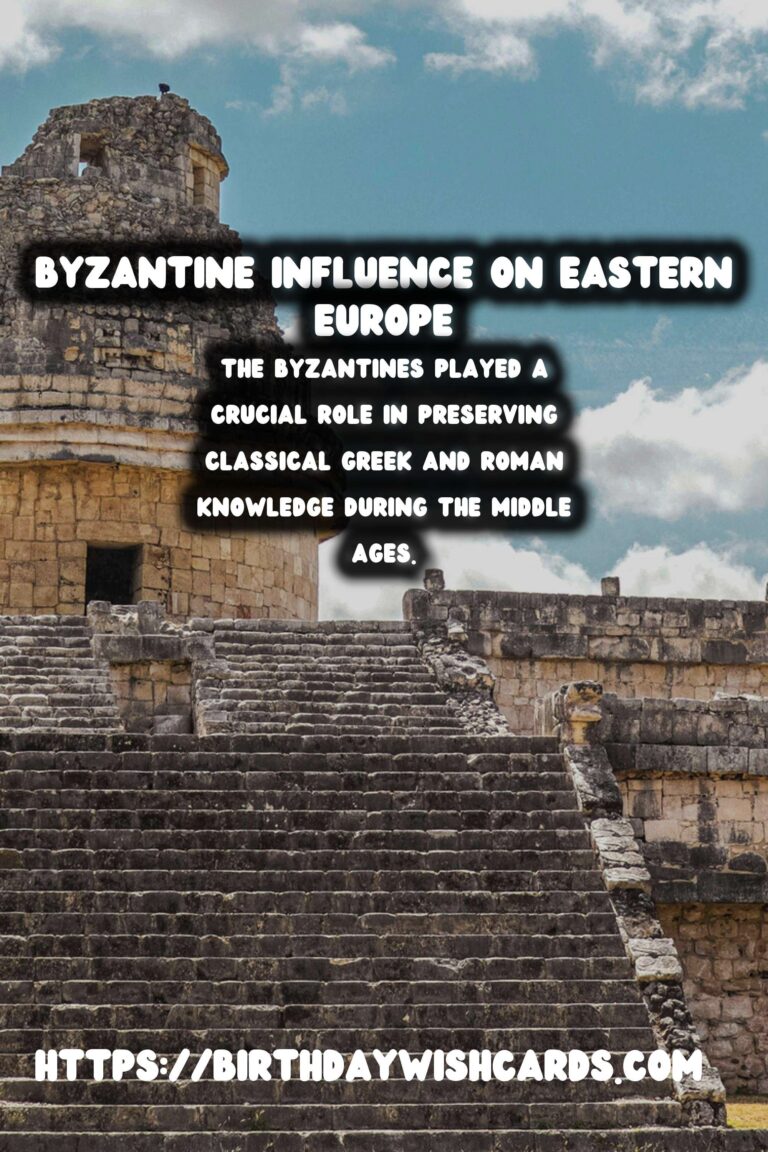
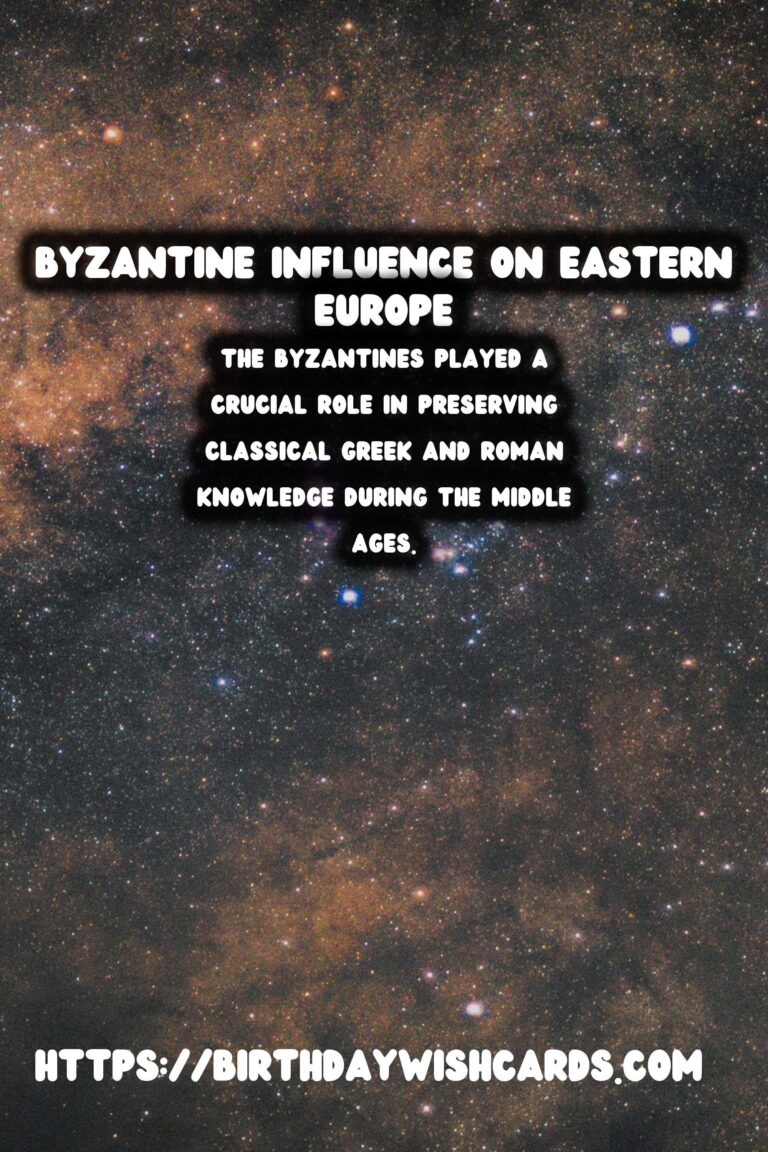
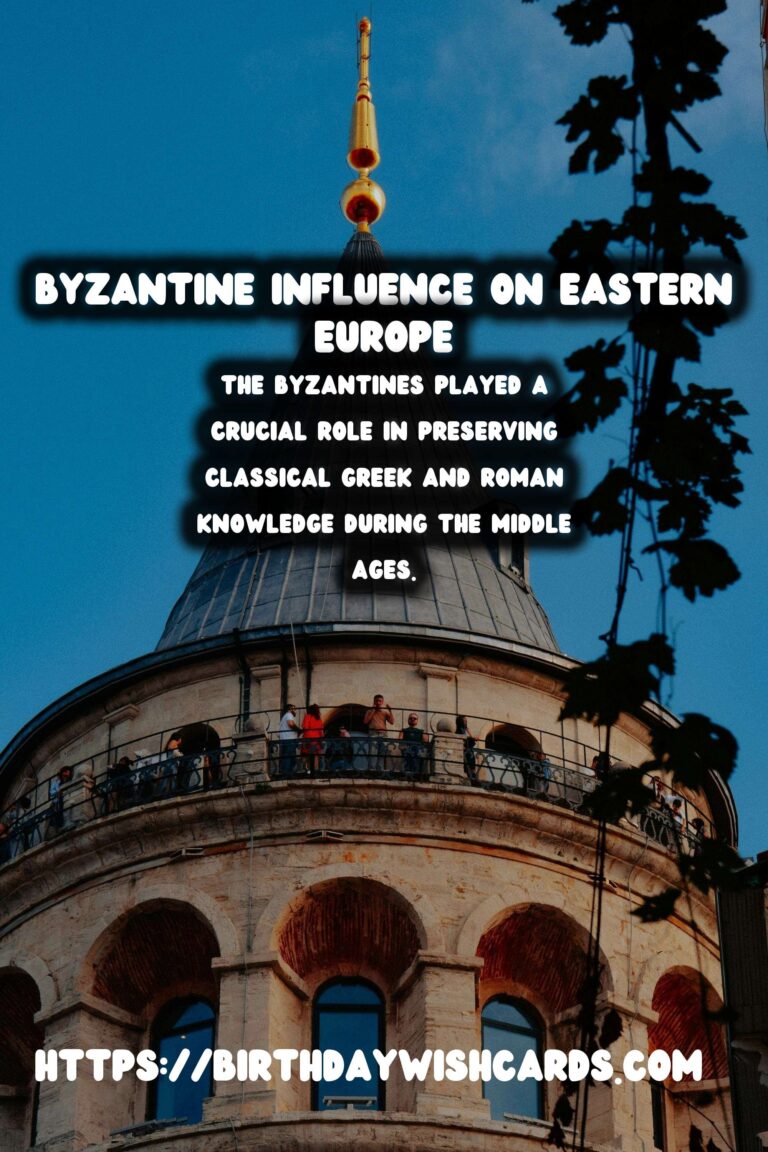
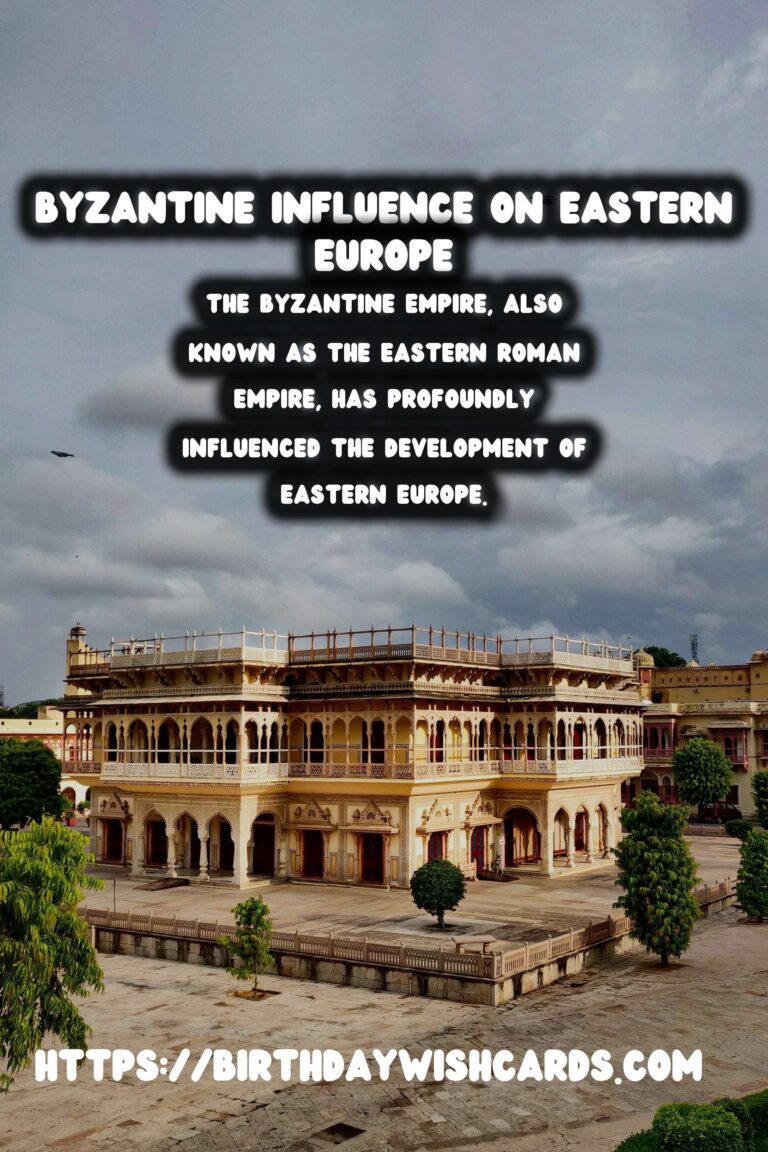
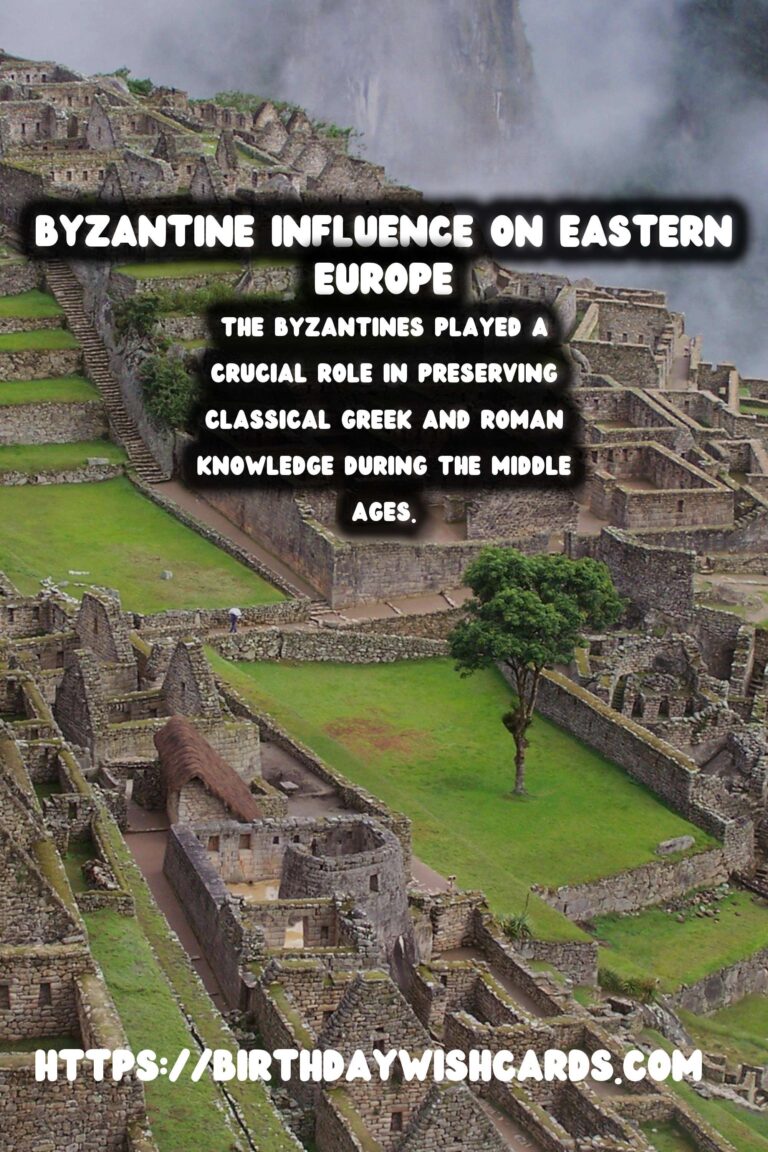
#ByzantineEmpire #EasternEurope




